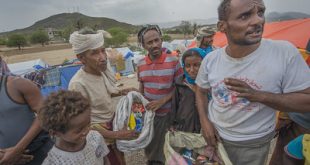By Abdulrahman Abotaleb
“You Can Pay Later.” A Moment of Humanity Amid Digital Collapse
On the evening of July 7, as flames engulfed Cairo’s Ramses Central telecom exchange, Rasha Al-Nemaky, a mother dining with her son at City Square Mall, encountered an unexpected problem: the card machine didn’t work. She tried her bank card again—still nothing. She rushed to the nearest ATM. All were down. Confused, she turned to the restaurant owner, who calmly said, “You can pay anytime. Don’t worry. The payment systems are all down,”.
“He didn’t ask for ID, nor did he try to “guarantee” the bill. He was incredibly kind,” Rasha wrote later in a Facebook post. What Rasha didn’t know at that moment was that she—and millions of others—had just entered one of Egypt’s worst digital infrastructure crises in recent memory.
A few kilometers away, the Ramses Central Exchange was burning. What began as a fire on the seventh floor quickly turned into a national-scale digital blackout. For hours, Egypt’s digital economy—and its citizens’ daily lives—hung in limbo. Four telecom engineers lost their lives. Over two dozen were injured. But what truly caught fire that day wasn’t just a building. It was the illusion of a functioning, modern, resilient digital state.
Egypt’s Invisible Infrastructure Burns
The Ramses Central building, constructed in 1927, still carries nearly 40% of Egypt’s domestic and international telecom traffic, according to Al Araby Al Jadeed (July 13, 2025). Despite a government narrative about “digital transformation” and new data centers in the New Capital and Ain El Sokhna, Cairo’s internet backbone remained dangerously centralized.
In short: one building goes down, and the nation falls silent.
Stock exchange? Frozen.
Banking apps and ATMs? Offline.
Railways and airport coordination? Delayed and disrupted.
The Ministry of Communications responded with vague statements and promises of investigation. But no one has answered a crucial question: Why is the digital fate of 110 million Egyptians tied to one aging telecom center in downtown Cairo?
A Crisis of Governance, Not Just of Technology
This is not a freak accident. It’s the predictable result of a system where critical infrastructure is centralized, undocumented, and unaccountable.
“Although Egypt has announced alternative data centers, its network remains excessively centralized. The Ramses fire revealed a vacuum in strategic planning,”
said cybersecurity specialist Mohamed Abdel Hamid in an interview with Al Jazeera (July 9, 2025).
According to a 2024 report by RIPE NCC, most Arab countries—including Egypt—operate with limited Internet Exchange Points (IXPs) and few regional backups. In Egypt’s case, even the new centers are tethered to Ramses as a routing core.
Silence in Times of Crisis
During the first six hours of the incident, no emergency protocol was shared with media or citizens. Banks issued contradictory updates. ISPs scrambled to reroute traffic. The public was left in the dark—literally and digitally. Meanwhile, Parliament called for an emergency hearing, with MPs questioning how digital resilience could be so fragile in a country aspiring to lead in regional fintech and AI development. But, true to form, no one was held accountable. The discussion disappeared as quickly as it erupted.
Could It Happen Elsewhere?
Yes. And it probably will. According to the Internet Society’s 2025 Internet Resilience Insights, much of the MENA region suffers from similar digital fragility: centralized control, low redundancy, and minimal transparency. From Amman to Algiers to Sana’a, digital sovereignty often remains a buzzword, not a policy.
So What Now?
If countries in the MENA region are serious about their digital ambitions, they need more than shiny infrastructure announcements and e-gov platforms. It needs to build trust and redundancy into the very bones of its internet.
Policy recommendations:
• Decentralize Internet Exchange Points and routing infrastructure.
• Enforce open, transparent disaster recovery plans from ISPs.
• Create a public registry of critical digital infrastructure.
• Engage civil society and independent technologists in national internet governance.
• Make resilience—not control—the guiding principle.
The Fire Wasn’t the Disaster. The System Is.
The fire at Ramses Central wasn’t just an accident, it was a consequence of centralization, of opacity, Of decades of infrastructural neglect hidden beneath digital slogans. If we don’t learn from it, the next blackout may not come from flames but from code, cables, or even geopolitics. And it may last longer than we can afford.
 الشبكة اليمنية للعلوم والبيئة (يمن ساينس) موقع يهتم بأخبار العلوم والتكنولوجيا والصحة والبيئة والسكان
الشبكة اليمنية للعلوم والبيئة (يمن ساينس) موقع يهتم بأخبار العلوم والتكنولوجيا والصحة والبيئة والسكان





